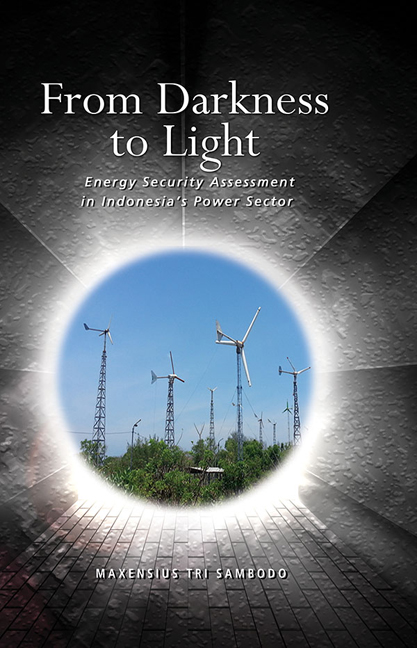Book contents
- Frontmatter
- Dedication
- Contents
- List of Tables
- List of Figures
- List of Abbreviations
- Acknowledgements
- 1 Introduction
- 2 A Historical Overview of the Electricity Sector
- 3 Electricity Production and Consumption: Boom and Bust
- 4 Economic Crisis and Its Impact on the Power Sector
- 5 Electricity and Economic Growth
- 6 Electricity and the Environment
- 7 The Rural Electricity Programme in Indonesia
- 8 Conclusion
- Index
- About the Author
7 - The Rural Electricity Programme in Indonesia
Published online by Cambridge University Press: 05 July 2016
- Frontmatter
- Dedication
- Contents
- List of Tables
- List of Figures
- List of Abbreviations
- Acknowledgements
- 1 Introduction
- 2 A Historical Overview of the Electricity Sector
- 3 Electricity Production and Consumption: Boom and Bust
- 4 Economic Crisis and Its Impact on the Power Sector
- 5 Electricity and Economic Growth
- 6 Electricity and the Environment
- 7 The Rural Electricity Programme in Indonesia
- 8 Conclusion
- Index
- About the Author
Summary
This chapter analyses the trend of the rural electrification programme in Indonesia. It presents analysis on the affordability dimension that is also linked to energy equity. The first part analyses the current position of electricity access from both regional and provincial perspectives. The second part investigates the affordability dimension of electricity and evaluates it both in nominal and real terms. The third part discusses the characteristics of households without electricity access using several indicators, such as housing and infrastructure conditions and social protection benefits from the government. The fourth section discusses the rural electrification programme in Indonesia, underlining the changing institutional actors and the outcome dimensions. Section five analyses the existing conditions of the rural electricity programme. Finally, the lessons learned from the rural electrification programme in Nusa Tenggara Province are discussed. To conclude, although Indonesia has contributed to reducing the number of people in the world without access to electricity and alleviating the huge disparity in electricity access and consumption among the provinces, the rural electrification programme has not yet devised a robust method or comprehensive strategies throughout the last six decades. The decision-makers seemed to lack an understanding of present and historical contexts in designing the programme. This affects the sustainability of electricity access. Resolving the problem of electricity access in Indonesia will require many more years.
CURRENT CONDITION OF ELECTRICITY ACCESS
The report of the Commission on Sustainable Development/CSD (2001) said that energy is central to achieving the goal of sustainable development. Access to affordable energy services is a prerequisite to reduce the number of people living on less than US$1 per day by 2015 (CSD 2001). The report also said that access to energy is crucial for economic and social development and the eradication of poverty. According to Birol (2007), there are three strategic challenges in global energy system, namely: (i) the growing risks of disruptions to energy supply; (ii) the threat of environmental damage caused by energy production and use; and (iii) persistent energy poverty, which is frequently overlooked in discussions. Birol (2007) has pointed out the vicious cycle of energy poverty and human under-development. Similarly, UNDP (2005) mentioned that access to electricity is a precondition to achieve the Millennium Development Goals (MDGs).
- Type
- Chapter
- Information
- From Darkness to LightEnergy Security Assessment in Indonesia's Power Sector, pp. 136 - 175Publisher: ISEAS–Yusof Ishak InstitutePrint publication year: 2016



